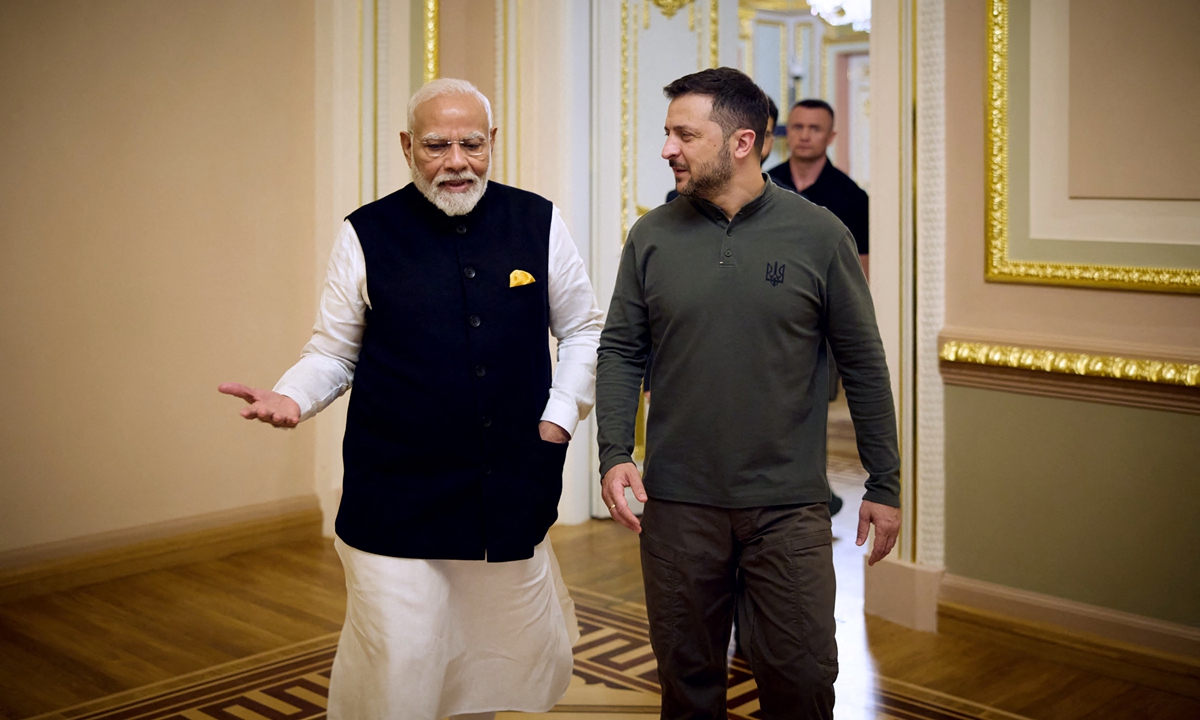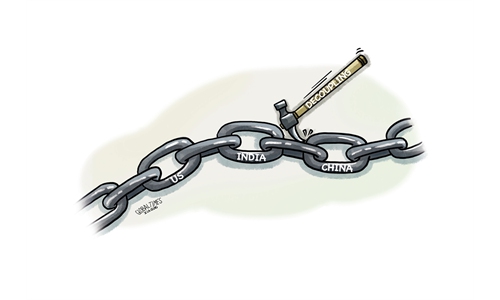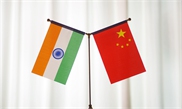
Photo: AFP
On Sunday, Ukrainian President Volodymyr Zelensky stated that he would support India hosting the second summit on peace as Kiev hopes to find a host among the countries in the Global South. This announcement came after Indian Prime Minister Narendra Modi's whirlwind visit to Ukraine last week.
Despite Modi's highly publicized visit to Ukraine, analysts believe that the possibility of India acting as a "peacemaker" is questionable.
Western media reports suggest that Modi's visit to Ukraine was a show of diplomatic support for Ukraine and potentially a positive sign for advancing settlement negotiations. The White House also welcomed Modi's visit.
However, some believe that the primary purpose of Modi's visit is to placate the West and strategically position India as "a voice of the Global South."
Zhang Jiadong, director of the Center for South Asian Studies at Fudan University, told the Global Times that India's primary focus is not the Russia-Ukraine conflict. The core goal of the move by Modi is to balance between Russia and the West, particularly the US.
In July, Modi's visit to Russia drew strong disapproval from the US and Western countries. India maintains close cooperation with both the US and Russia, and its policy choices aim to balance the major powers and avoid leaning entirely toward either side.
Therefore, rather than a diplomatic move, Modi's visit to Ukraine this time should be more accurately seen as an attempt to balance and repair the impact of Modi's visit to Russia, which had caused a decline in India's relations with the West.
Throughout the international community, India has consistently showcased its "great power aspirations" and posture as a major player. During this visit to Ukraine, Modi has significantly raised his international visibility.
However, high visibility does not necessarily equate to tangible results.
Zhang believes that India's ability to mediate the Russia-Ukraine conflict is constrained by its own capabilities and willingness. India is neither a direct party to the conflict, nor a key third party, and its willingness to act as a mediator is more about enhancing its own influence. Furthermore, for India, the importance of the India-Russia relationship far outweighs that of India-Ukraine relations, and its relations with Russia have not downgraded even under pressure from the US.
In addition, India's capacity to mediate the Russia-Ukraine conflict is limited, according to Zhang. At the G20 Foreign Ministers' meeting held by India in March last year, due to significant differences among parties on the situation in Ukraine, a joint statement was not reached. Indian Foreign Minister Subrahmanyam Jaishankar stated, "We could not reconcile as various parties held differing views." More than one year has passed, the conditions for India to reconcile are still not ripe.
Although Ukraine has suggested that India could host a second summit on peace, it comes with a precondition: the host country must sign the communique from the previous summit.
Notably, despite frequent requests from the US and its allies for India to take a clearer stance on the conflict, including this visit to Ukraine, Modi has not yet publicly condemned Russia, and it would seem that he has no intention of abandoning military and economic cooperation with Russia.
Some Western media outlets believe that the US and other Western countries have gradually accepted New Delhi's stand. This is because they don't want to lose India as a counterbalance to China.
Long Xingchun, a professor at the School of International Relations at Sichuan International Studies University, suggests that Modi's visit was meant to placate the US and Ukraine, while retaining its relationship with Russia, playing a hedging "wait-and-see" strategy.
Overall, this visit of Modi to Ukraine appears to be more about India's political interests. It seems that rather than mediating between Russia and Ukraine, India's real objective is to maintain a balance between Russia and the US.
As Western media pointed out, the Ukraine peace summit in Switzerland in June failed to achieve Ukraine's goal of persuading major countries from the Global South to join in isolating Russia.
Even if India were to host a second Ukraine summit, it would not be able to help the West isolate Russia.
The author is a reporter with the Global Times. opinion@globaltimes.com.cn


